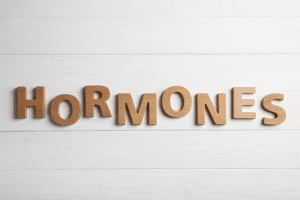This article, posted on October 23, 2013 seems to think so.
But, wait a minute before you rush out and get this injection. Let’s spend a few minutes discussing how vaccinations really work and whether this is a good idea or not. With this information you can then decide what you want to do.
First, a little immune system primer. Let’s use a burglary in progress as an analogy. Your house, like your body, has many protective barriers; walls, doors, windows, and a roof, that protect your home from the elements. Of course, your bodies protective barriers are your skin, and the protective linings of your lungs, intestines, and brain. If the walls to your house are damaged and develop leaks you can imagine what might happen to the inside of your house. In a similar way, when the protective barrier’s of your body are broken down, instead of wind and rain getting in, other foreign invaders, called antigens penetrate into your body. Antigens include bacteria, parasites, environmental toxins, molds, undigested food particles, and viruses. We’ll think of these antigens as burglars. When these antigens break into your “house” your immune system gets fired up…the alarm goes off!
First, a macrophage, known as the TH1 response, will attack the foreign invader. Think of this response as the police force who come to stop the the burglar using as much force as necessary. The macrophage also releases a cytokine called interleukin-1, which stimulates T-helper cells to call for back-up (Natural Killer Cells and T Cells) to bring the burglar completely under control. Sometimes the burglar is too strong for the police and they need to call in the SWAT team. The SWAT team is made up of B-Cells, known as the TH2 response. The TH2 response is where antibodies are produced to help recognize the burglar in case he tries to break into the house in the future. Think of antibodies as a GPS ankle bracelet that criminals wear when they are released from jail. With this GPS unit the police can continually track the bad guy and be ready to neutrilize him if he tries to commit burglary again. The antibodies make the Natural Killer Cells and T Cells more efficient at recognizing the burglar. This whole process is known as an active TH1-TH2 response.
With that said, lets briefly discuss what the flu vaccine (or any other vaccine) must do to immunize a person against the disease. First, the vaccine must trigger a TH1 response, which leads to a TH2 response, which will produce antibodies against the flu (or whichever disease the vaccine is made for). Now the antibodies (GPS unit) should protect against future infection by marking that flu virus (burglar) so that if he should break into your house an immediate TH1 response (police force) will occur and destroy the flu virus before you get sick. In a nutshell, this is how immunity takes place. This is in a perfect world, of course.
Well, here are a few questions you must ask yourself. How much flu vaccine do you need to stimulate the TH1 AND TH2 response? Does an already sick person need the same amount of flu vaccine as a healthy person? Does an infant need the same amount as a 40 year old or an elderly person? What if the TH2 response is not triggered? Will you be immunized against that flu virus? How would you know if you’ve been truly immunized against that flu virus? What else is in the flu vaccine that might trigger your immune system attacking your own tissues (autoimmunity)? Are attenuated (reducing the strength) organisms going to be strong enough to elicit the same response as natural exposure to the virus and thus result in the production of specific antibodies?
If a TH2 response is not elicited, you simply cannot be immunized and the only way to truly know if immunization occurred is to have your antibodies measured a few weeks later.
So, should you get a flu shot to prevent a heart attack? If you read between the lines of the article, the underlying problem is inflammation which is already present in these heart attack sufferers prior to getting the flu. So, if you ask me, the wise thing to do, rather than getting a flu shot, is to work on preventing and/or treating the underlying cause of the inflammation. Without inflammation the heart attack is not going to happen.
Look for future posts about how to work on controlling the cause of inflammation.




